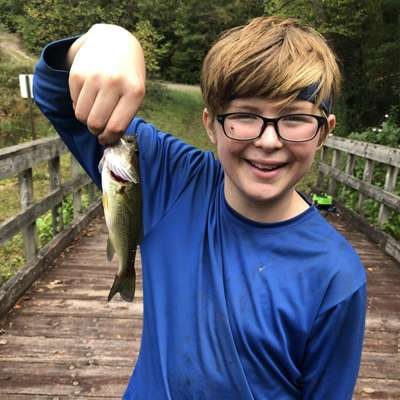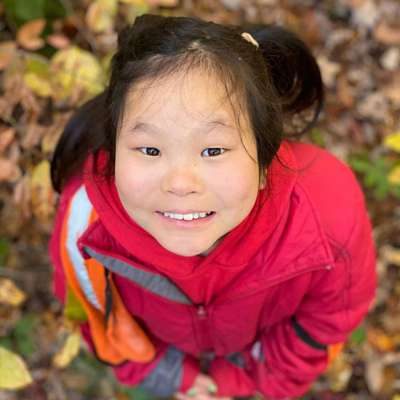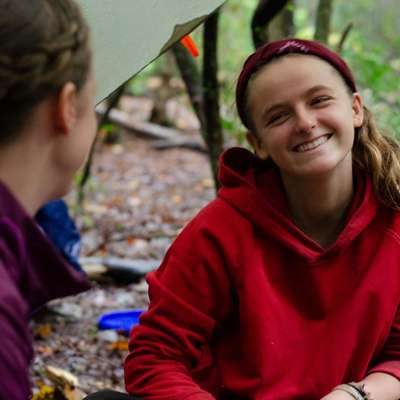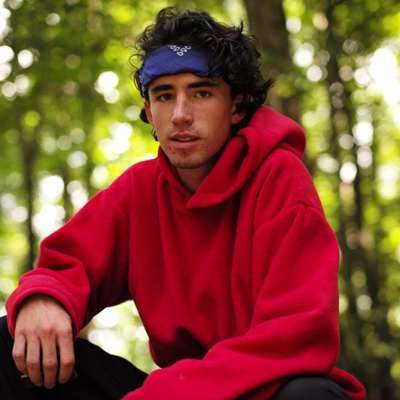Attachment Orientation and the Development of Behavior Problems
Carlyn Daubs, MS and Shelley A. Riggs, Ph.D.
It has become increasingly evident that a child’s attachment orientation can have a powerful impact on his or her growth. Children’s attachment organization has been shown to impact how they interpret and respond to their environment throughout early and later development (Bowlby, 1973). Researchers have also clearly demonstrated a link between attachment organization and the development of behavior problems in children and adolescents showing that the more insecure the attachment, the more severe the behavior problems (DeKlyen, Speltz, & Greenberg, 1998; Speltz, DeKlyen, & Greenberg, 1999). As more children are being diagnosed with various attachment disorders (i.e. Reactive Attachment Disorder and certain types of insecure attachment) it is clear that treatment facilities need to address the delicate interaction between attachment and the manifestation of behavior problems. Trails Carolina is an excellent program that treats child and adolescent behavior problems that result from these attachment disorders.
Bowlby (1982) posited that internal working models of the self and others develop in the context of early child-parent interactions and are the mechanism by which continuity in attachment is achieved. The child learns to manage distress through experiences with the primary caregiver, which influences affective regulation later in life (Schore, 2000). These early experiences serve as a template for expectations of others and are incorporated into the internal working models, which then guide responses to other distressing events later in life. DeKlyen and Speltz (2001) described how the parent-child relationship affects the development of behavior problems and asserted that many behaviors later deemed behavior problems are simply attachment strategies of seeking comfort and proximity.
An interesting study conducted by Speltz, DeKlyen and Greenberg (1999) found that 54% of preschool-aged boys, who were later diagnosed with early onset Conduct Disorder in adolescence, demonstrated insecure attachment to both parents as preschoolers, as opposed to only 18% of boys with no diagnosed behavior problems in adolescence. They found that all three insecure attachment categories were overrepresented in their clinical sample. A similar study comparing preschool children who were later diagnosed with ODD to a control group reported that only 16% of the children diagnosed with ODD had a secure attachment in preschool compared to 72% of the control group (Greenberg et al., 1991).
Children and adolescents with attachment disorders excel at Trails Carolina because the program model implicitly addresses the needs of this population. The therapists at Trails Carolina meet with the students several times a week to provide a consistent and corrective emotional experience to challenge the maladaptive internal working models that he or she developed. In addition to providing that continuity in the therapeutic milieu, the therapist works with the child’s home therapist and primary caregivers in order to facilitate the transition from Trails Carolina to home.
Another common problem that children and adolescents with attachment disturbances have is the diminished capacity to self soothe. A major focus of Trails Carolina is to teach its students more adaptive coping strategies to use in times of frustration, fear, anger or grief. The wilderness setting at Trails Carolina teaches students to become self-reliant while also encouraging them to trust that their instructors will keep them from the elements of nature. Students have the corrective emotional experience at Trails Carolina that allows them to begin to trust themselves and others.
It has been repeatedly demonstrated that children and adolescents with attachment problems do not respond well to therapeutic interventions designed to shame or “break them down,” but that they do respond well to many different modalities of behavior modification. Trails Carolina implements an individualized treatment approach that builds on the strengths of each child and adolescent. Because of the high student to staff ratio, the direct care staff and therapists can tailor the program to address the specific needs of each student that regardless of the origination of the problem behaviors. The staff at Trails Carolina creates a delicate blend of behavior modification techniques that specifically address each student’s needs.
Children and adolescents with attachment difficulties often have difficulty in traditional social settings due to the maladaptive internal working models that they have developed. These individuals may have a difficult time trusting peers or may find it difficult to engage in age-appropriate romantic relationships. In addition to traditional behavioral modification techniques, Trails Carolina uses principles from social learning theories as well. Using the group milieu, the Trails Carolina therapist facilitates an environment that allows for open and honest feedback to group members, consensual validation and introduces specific strategies the students can use to begin to change the maladaptive behaviors. For many, this is the first time that they are able to realize the impact that their behavior is having on other people.
Children and adolescents with attachment disorders are faced with unique challenges throughout the course of their development. If left untreated, these individuals may develop severe behavior problems that can negatively impact their future. Intervening early can prevent many of the adverse effects of attachment disturbances, but it is essential to choose a treatment facility like Trails Carolina that is prepared to meet the needs of these individuals. Trails Carolina has consistently demonstrated that its treatment approach is effective in helping these individuals become successful members of their family and the community. The program at Trails Carolina has been designed to meet the unique needs of struggling children and adolescents and has proven to be an integral part in their lasting success.
References
Bowlby, J. (1973). Attachment and loss, Vol. 1: Separation. New York: Basic Books.
Bowlby, J. (1982). Attachment and loss: Vol.2 . Attachment (2nd ed.). New York: Basic Books.
Deklyen, M., & Speltz, M. L. (2001). Conduct disorders in childhood and adolescence 320-345. Hill, J.; Maughan, B. New York, NY, US: Cambridge University Press, 2001.
Greenberg, M. T., Speltz, M.L., DeKlyen, M., & Endriga, M. C. (1991). Attachment security in preschoolers with and without externalizing behavior problems: A replication. Development and Psychopathology, 3, 413-430.
Schore, A. (2000). Foreword to the reissue of Attachment and loss, Vol 1: Attachment by John Bowlby. New York: Basic Books.
Speltz, M. L., DeKlyen, M., & Greenberg, M. T. (1999). Attachment in boys with early onset conduct problems. Development and Psychopathology, 11, 269-285.
Our Residential Program Groups
At Trails Carolina, we provide a supportive, healthy environment for a variety of age groups to receive treatment for various behavioral and mental health issues. Our residential therapy programs include options for preteen boys (10-13), preteen girls (10-13), teen girls (14-17), and teen boys (14-17).
We believe that segmenting groups by age and gender allows our team of mental health professionals, residential and field staff, and accredited academic educators to provide more focused and effective personalized care to each student. Additionally, evidence shows that using segmented peer groups helps students learn to build positive relationships among their own peers. This makes the transition back to traditional school settings easier for young people. And it helps our students learn how to interact and build healthy connections for life!
Get started today
Contact us today to learn how Trails Carolina can help your family
Trails saved my daughter’s life. Amanda is an amazing human and a brilliant therapist. I am so grateful to her, Science Steve, and the other wonderful people who could reach my daughter at a time when I could not.
Margot Lowman August 2022
Great life changing experience for our son. After becoming addicted to gaming during covid he was very depressed. At Trails he experienced the wilderness, Science Steve, learning survival skills and top notch therapy and support etc… I highly recommend! This gave our son and our family a renewed family bond full of love and excitement about his bright future.
Winnifred Wilson July 2022
Outstanding clinical work and superb staff! There’s a great culture at this company and it shows with how they engage with families/clients.
Kristin Brace June 2022




